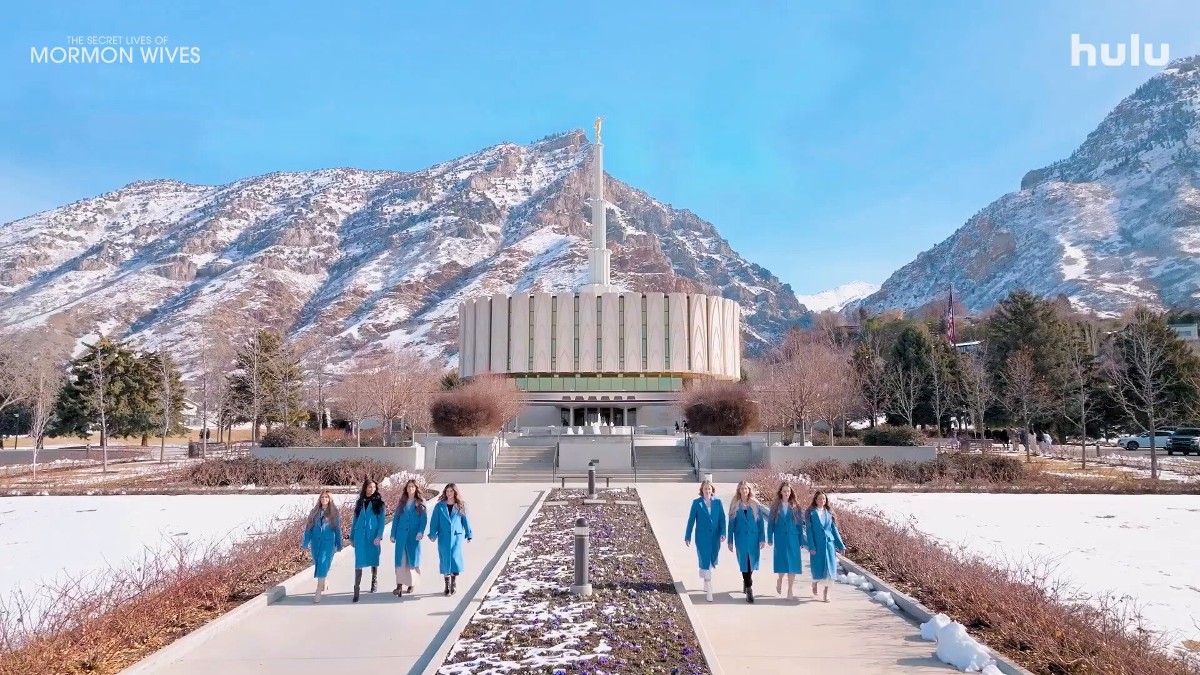LDS Church releases divisive statement ahead of ‘Secret Lives of Mormon Wives’ premiere

The Church of the Latter-day Saints’ official statement on Hulu’s upcoming The Secret Lives of Mormon Wives is receiving mixed reactions from those within and outside the Church.
The Secret Lives of Mormon Wives is a docuseries set to explore the swinging scandal that broke out among a group of Mormon TikTok influencers. Beginning in 2020, Taylor Frankie Paul, Demi Engemann, Jennifer Affleck, Jessi Ngatikaura, Layla Taylor, Mayci Neeley, Mikayla Mathews, and Whitney Leavitt gained traction for sharing their lives on social media. While the group featured mothers and wives from Utah who identified as Mormons, they set about breaking some norms and traditions associated with the LDS Church, such as becoming the providers for their families through their social media success.
However, things took a strange turn when, in 2022, Paul announced her divorce from her husband, Tate Paul. Her followers were surprised when, in a TikTok Live, Paul revealed that the divorce stemmed from her and her group’s participation in swinging—yes, swapping partners for sex. The divorce arose because Paul went too far with one member of the group without the rest of the group’s approval. Her swinging disclosure caused a stir online, as many questioned whether the practice was common among LDS members or if it was grounds for excommunication from the Church. Now, the women involved in the controversy plan to tell their side of the story via Hulu’s documentary.
The LDS Church addresses The Secret Lives of Mormon Wives
Ahead of The Secret Lives of Mormon Wives’ premiere, the LDS Church released a statement distancing itself from the show. In the statement, the Church alleged that recent media, such as the docuseries and upcoming horror movie Heretic, have not accurately portrayed the Church. It stated, “Some portrayals are fair and accurate, but others resort to stereotypes or gross misrepresentations that are in poor taste and have real-life consequences for people of faith.”
The Church claimed it was an ongoing issue but was compelled to speak out because “recent productions depict lifestyles and practices blatantly inconsistent with the teachings of the Church.” While it acknowledged the interest and fascination with the Church, it warned that “portrayals often rely on sensationalism and inaccuracies.” The Church also emphasized, “Millions of Church members around the world are deeply dedicated to family, fidelity, service, and the gospel of Jesus Christ.” It concluded its statement by encouraging viewers to “consult reliable sources of information” and listen to “authentic experiences of individuals and families” to get an accurate view of the Church.
The statement drew mixed reactions in the comments. One of the main reasons for the mixed responses is the ongoing debate The Secret Lives of Mormon Wives has sparked about whether the women at the show’s center are, indeed, Mormon. Those within the Church have slammed the show and claimed it does not reflect them whatsoever. The top comment on the Church’s statement read, “Let’s be real- if they wanted ‘real Mormon wives’ it would be a show about getting your kids ready for church, volunteering for snack for your kids football team, preparing for girls camp, doing laundry, having lunch with your ministering sisters, taking dinner to a sick elderly couple- that’s how it really be in our lives!!”
Many comments also came in from ex-members of the Church, who stated they still found the show offensive, with one commenter writing, “That is not what I nor my family acted. This show does not depict Mormon lifestyles WHATSOEVER.” The problem is that the statement itself and the comments seem to suggest that these women aren’t Mormons because they don’t adhere to a specific lifestyle. However, since many of these women were baptized in the Mormon Church and are/were official members of the Church, it can’t be denied they do represent at least a small minority of Mormons.
One commenter wrote, “If the church didn’t want them, they could kick them out of the group, but they haven’t, so they are LDS and do represent us members,” while another wrote, “Just because you’re a Mormon and you don’t act like these people doesn’t mean there aren’t Mormons that do. They might accurately represent a subset of Mormons that you don’t belong to.” The central question that the statement raises is why it seems to close itself to the idea that one can have Mormon faith while simply choosing to live a different lifestyle.
Additionally, many have pointed out how strange it is that the LDS Church took the time to address a TV show but has remained silent on some major abuse cases concerning its members, such as the case of Ruby Franke and Jodi Hildebrandt. If the Church can speak out to condemn its members who don’t adhere to a particular lifestyle, shouldn’t it also speak out to condemn its members who have committed horrific crimes in the name of the Church?
Have a tip we should know? tips@themarysue.com